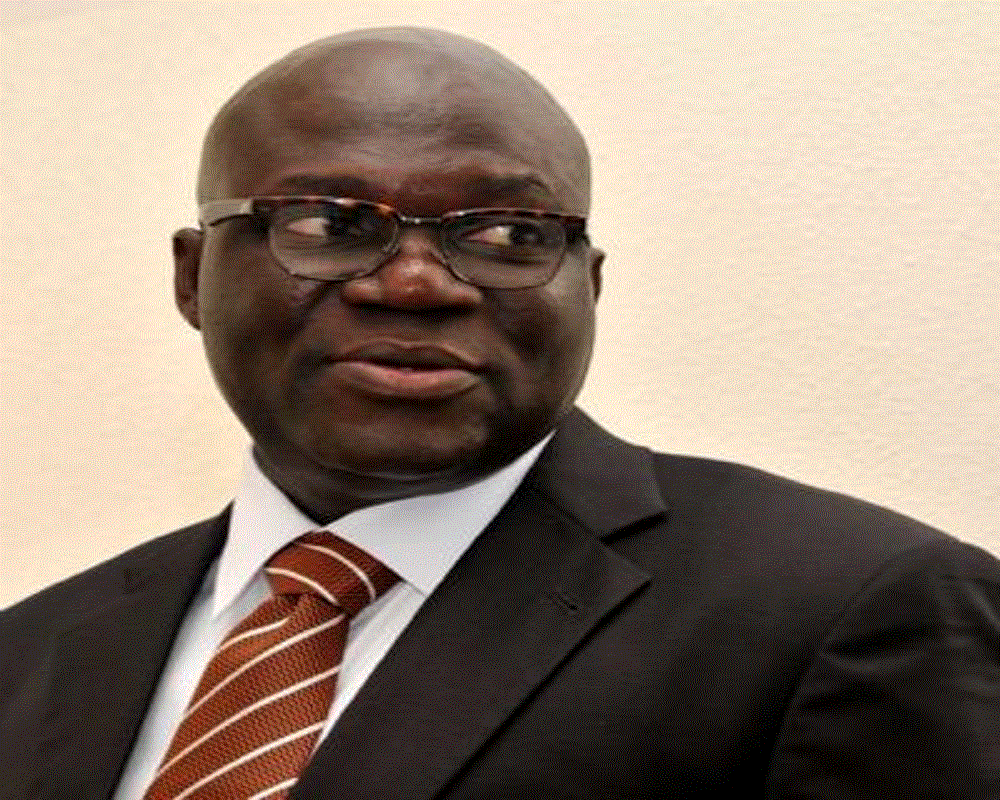LG Autonomy As A Panacea For National Development – Mike Ozekhome
Anthony Albanese once opined that despite the enormous role that local government plays in our daily lives, the Constitution makes not one mention of it. On this note, we continue our discourse on the above vexed issue.
THE AUTONOMY OF LOCAL GOVERNMENTS
In its simplest term, the word ‘autonomy’ means independence in one’s thoughts or actions. The word ‘autonomy’ can be defined as the ability of a person or authority to make his or her own decisions. It is the right of an organization, country, or region to be independent and govern itself. Local Government autonomy can therefore be defined as the local government’s quality or state of being self-governing, the right or condition of self-government and freedom from external control or influence. It is the extent to which local governments are free from the control of the state and federal government in the management of their local affairs” (Adeyemo, 2005). Local Government fiscal autonomy is derived from the fiscal federalism as is supposed to be practiced in the Nigerian federation.
The most fundamental rationale for creating local governments anywhere in the world is to employ it to take responsibility for the development of the area directly and also contribute indirectly to the development of the nation. National development embraces the total development of man and his environment in all ramifications in an area, under a political organization or structure (like a Local Government), on a participatory and sustainable basis. This is better done through governmental autonomy, which is, in turn, sustained by the Local Government Council’s adequate performance of its developmental responsibilities.
All the attributes of national development depend on the provisions of the CFRN, 1999. These attributes are provided for in Chapter II of the 1999 Constitution. The system of democratically elected Local Government Councils simply means that the Councillors would no longer be the candidates of State governments as was the case in the past. Rather, they are empowered to serve out their terms without fear or favour.
Section 7(1) CFRN, 1999, provides for democratically elected Local Government Councils. This system of government is not optional and has been guaranteed under the 1999 Constitution to the extent that every state is mandated to ensure its existence under a law which provides for the establishment, structure, composition, finance and functions of these democratically elected local government councils. The Local Government Council is separate from the State government, in that derives its powers, functions and duties from the Constitution and not under or from the authority of a Governor, or through laws made by a State House of Assembly. The intermediate court held that a State government has no power to dissolve a local government council in the matter of ONUEGBU & ORS v. A G IMO STATE & ORS (2012) LPELR-19691(CA), wherein Justice Uwani Musa Abba Aji, J.C.A., (as she then was), held thus:
“It is sacrosanct that the tenure of elected Local Government Chairmen or any office holder guaranteed under the 1999 Constitution as amended cannot be abridged or determined at the whims and caprices of the Executive.”
The [Governor] therefore lacks Constitutional powers to dissolve the 27 democratically elected Local Government Councils wherein the Appellants herein are the Chairmen. The Governor swore to preserve, protect and defend the Constitution and not to mutilate it. Although, the House of Assembly has power to make laws, such laws must be in accordance with the provisions of the Constitution.
The House of Assembly has no power to make any law giving the Governor power to truncate a democratically elected Local Government Councils. All what I am saying is that there is nothing that subordinates the democratic system under Section 7 (1) of the 1999 Constitution on Local Government System to the whims and caprices of the Executive arm of the State or the legislative powers of the State House of Assembly (emphasis mine).
See also ATTORNEY GENERAL OF PLATEAU STATE V. HON. CHIEF ANTHONY GOYOL (2001) 16 NWLR (Pt. 1059) 57; ATTORNEY GENERAL OF BENUE STATE V. HON. MUSA UMAR (2002) NWLR (Pt 767) 701. Only recently, the Supreme Court condemned the whimsical act of dissolving LGAs and held that the 2015 dissolution of the 34 Local Governments in Katsina State by Governor Aminu Masari and the 2019 sack of the Chairmen and Councilors of the 33 Local Governments and 35 Local Council Development Areas in Oyo State by Governor SeyiMakinde, were in total breach of Section 7(1) of the 1999 Constitution.
LGs NOT CONSTITUTIONALLY RECOGNISED AS A TIER OF GOVERNMENT
However, irrespective of these authorities to the effect that a Local Government was created to be autonomous and neither the State Government nor a State House of Assembly can make laws affecting or limiting the powers of the Local Government, the Constitution ‘assumes’ otherwise. The legal framework of the Constitution does not see Local Governments as a third tier of government, but merely recognizes Local Government as an appendage of State Government, where the latter enjoys absolute discretion over the former.
This is because the constitutional status of the Federal and State governments is clear and unmistakable. Chapter V, Part I (Sections 47–89) of the 1999 Constitution makes extensive provision for the legislative arm of government at the Federal level. Similarly, Part II (Sections 90–129) of the same Chapter makes provisions for legislative arms of government at the State level. Provisions are equally made in respect of the executive powers and functions of the Federal and State governments. These provisions automatically accord the Federal and State governments the constitutional autonomy and legal framework required for their operations.
Unfortunately, no such provisions exist for Local Governments. The Constitution provides no legislative powers for the Local Government, inherently subjecting the Local Governments to laws made by the State Houses of Assembly.
It is noteworthy that the cases cited above are to the effect that the Governor and the State Houses of Assembly cannot dissolve a Local Government Council. However, none are to the effect that the Local Government is not subject to laws made by a State House of Assembly, or that Local Governments can make their own laws. Indeed, LGs are subject to laws made by Houses of Assembly.
Moreover, in the Second Schedule to the 1999 Constitution, two types of legislative powers are categorized, namely the Exclusive Legislative List and the Concurrent Legislative List. The Exclusive Legislative List contains matters that can only be legislated upon by the National Assembly while the Concurrent Legislative List contains matters that can be delegated on by both the Federal and State governments. However, no mention is made of Local Governments; a situation that further undermines the assumed third-tier status of Local Governments in Nigeria.
NOW THIS LOCAL GOVERNMENT AUTONOMY: THEORY VS. PRACTICE Article 7 of the 1999 Constitution empowers State governments to enact legislations with regard to “the establishment, structure, composition and functions” of democratically elected local government councils while the Fourth Schedule also assigns some critical functions to local government. However, these provisions only exist on paper. In practice, state governments have taken over most local government functions in order to justify spending funds earmarked for councils in the Joint Revenue Account.
Similarly, Section 106 of the 1999 constitution provides that the minimum qualification for election as Chairperson or Councilor in a local government shall be the post-primary school certificate. This low threshold has made a career in local politics unattractive. A poorly educated political officeholder who is also inexperienced in the art of governance can hardly offer meaningful leadership. However, States have capitalized on this lacuna to put persons of poor educational background in power, as long as they will be ‘yes-men’ or loyalists. An additional problem is that states often determine the tenure of elected members of local government councils. In many instances in Nigeria, State governments have decided not to conduct elections for the [local] councils, as evidenced in Anambra State, wherein a caretaker system was maintained for over six years. This practice is an assault on the principle of popular participation in grassroots democracy.
The 1976 local government reform, which was largely incorporated in the 1979 constitution, recommended direct funding from the Federation Account, with local government receiving a defined percentage of funds in the revenue allocation formula. This provision for financial autonomy has however been eroded. Allocations channeled through state governments are often not remitted to local governments but are instead used by state governments to reimburse themselves for expenditure made on behalf of local governments. Until 2000, allocations from the Federation Account were collected directly by local governments from the Federal Pay Offices in their respective states. However, this changed when the 1999 Constitution introduced the State Joint Local Government Account (SJLGA). These SJLGAs have become infamous, with allocations regularly being misappropriated. Many state governors were accused of misappropriating local government funds during the first 12 years of democratic rule, with the aid of the SJLGA. For example, in 2010, 27 local governments in Borno State threatened mass action in protest at alleged indiscriminate deductions from their monthly allocations. Each local government lost 20% of its allocations.
Although the State is entitled to 26 percent of the Federation Account and the Local Government 20 percent, the practice is that States actually appropriates 48 percent, with the portion accrued to local governments at the discretion of State Governments. This is enabled by the SJLGA, which has become a crucial enabler for corruption. This is further worsened by the fact that findings from quarterly audits done by the Local Council Auditor are not communicated to anyone except the Chairman and the Head of Finance. This secrecy and opaqueness prevent effective monitoring of implementation of recommendations or ensuring that Local Government funds are appropriately utilized, thereby rendering accountability impossible.
Consequent to the misuse and misappropriation of SJLGA funds, local governments have become ineffective. Post-budget control imposes further restrictions on their operations, while local government Chairs also siphon off funds using all manners of strategies. The consequent negative impacts of such financial strangulation of local government councils are expected, as such a local government administration will become ineffectual and unable to bring the government closer to the people.



